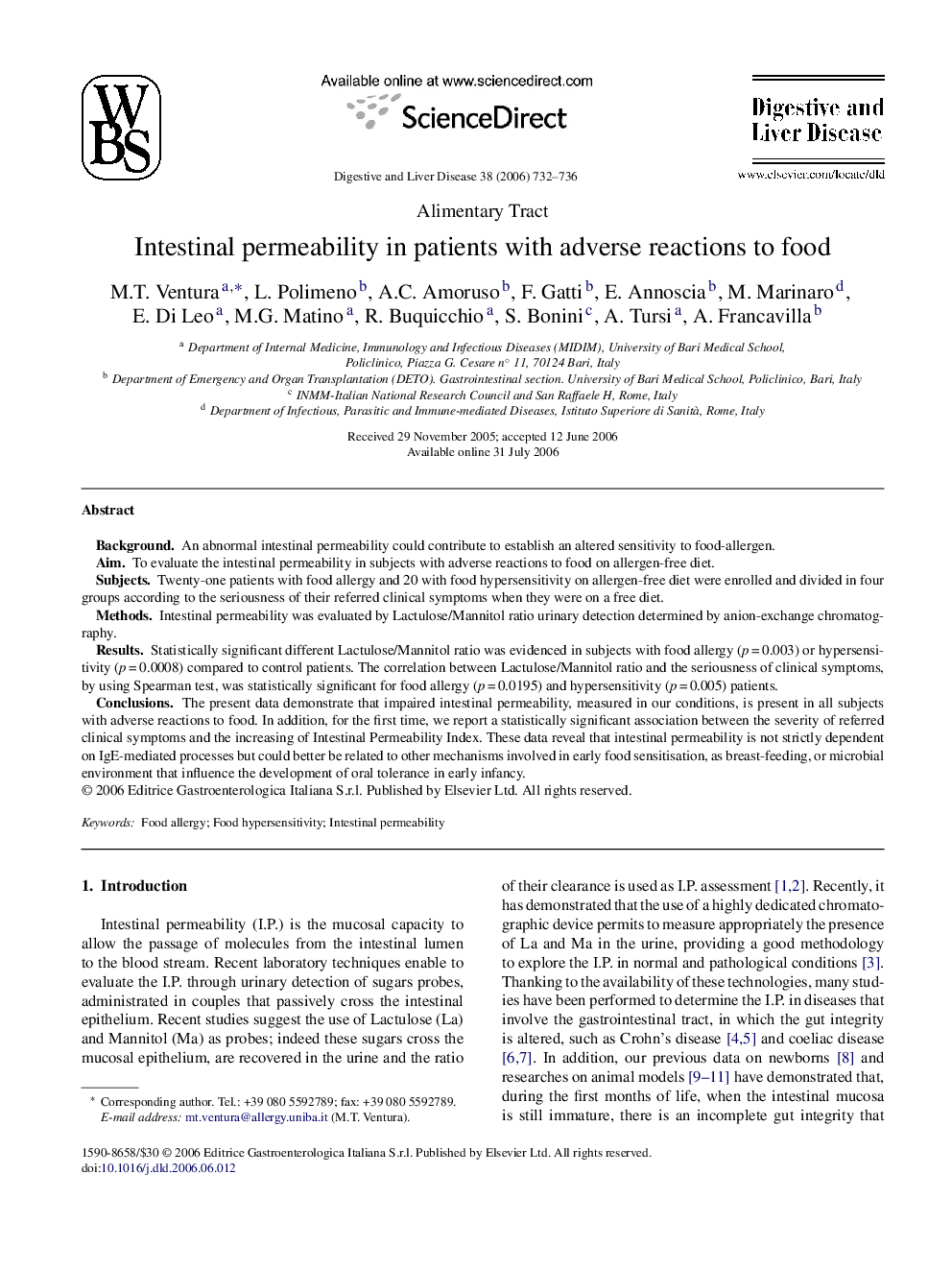| Article ID | Journal | Published Year | Pages | File Type |
|---|---|---|---|---|
| 3266301 | Digestive and Liver Disease | 2006 | 5 Pages |
BackgroundAn abnormal intestinal permeability could contribute to establish an altered sensitivity to food-allergen.AimTo evaluate the intestinal permeability in subjects with adverse reactions to food on allergen-free diet.SubjectsTwenty-one patients with food allergy and 20 with food hypersensitivity on allergen-free diet were enrolled and divided in four groups according to the seriousness of their referred clinical symptoms when they were on a free diet.MethodsIntestinal permeability was evaluated by Lactulose/Mannitol ratio urinary detection determined by anion-exchange chromatography.ResultsStatistically significant different Lactulose/Mannitol ratio was evidenced in subjects with food allergy (p = 0.003) or hypersensitivity (p = 0.0008) compared to control patients. The correlation between Lactulose/Mannitol ratio and the seriousness of clinical symptoms, by using Spearman test, was statistically significant for food allergy (p = 0.0195) and hypersensitivity (p = 0.005) patients.ConclusionsThe present data demonstrate that impaired intestinal permeability, measured in our conditions, is present in all subjects with adverse reactions to food. In addition, for the first time, we report a statistically significant association between the severity of referred clinical symptoms and the increasing of Intestinal Permeability Index. These data reveal that intestinal permeability is not strictly dependent on IgE-mediated processes but could better be related to other mechanisms involved in early food sensitisation, as breast-feeding, or microbial environment that influence the development of oral tolerance in early infancy.
